News
French Government aid tranche to Sri Lanka through AFD exceeds Euros 172 million
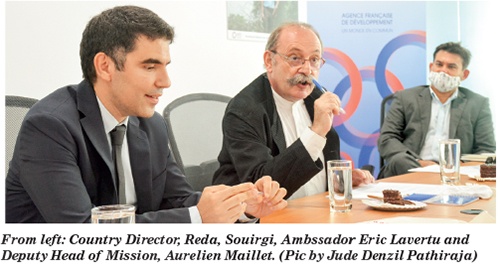
by Steve A. Morrell
Agence Francaise de Development Group (AFD), a development bank and cooperation agency, owned by the French government, implements France’s policy on development finance.
The institution’s mandate encompass extending development financial assistance to the public sector to accelerate growth and transition towards a more sustainable world.
AFD’s Country Director Reda Souirgi, with the Ambassador for France in Sri Lanka and the Maldives, Eric Lavertu and Deputy Head of Mission, Aurelien Mailet explained a wide cross section of development aid projects ongoing and projected for implementation that would benefit Sri Lanka, at a news conference in Colombo recently.
The Ambassador said irrigation projects for improvement included flood control and providing safe drinking water.
Discussions are continuing with farmers in Trincomalee and Batticaloa for the implementation of the planned irrigation projects with tangible benefits to them on completion, he noted.
“We also discussed the projects with the Bishops of Trincomalee and Batticaloa and the Eastern University for further inputs before going ahead with their implementation”, the envoy further said.
The Mundeni Aru Basin development project has also been included for implementation in the Batticaloa and Ampara districts, he said.
Introducing Country Director Reda Souirgi, the Ambassador said he assumed duties in the Embassy two months ago to take charge of AFD development projects. He is an engineer with wide experience to implement such projects.
Souirgi said he joined AFD in 2015 and was active in implementing projects in Senegal, Cote d’ lvoire, Tunisia and Colombia. He also worked in Latin America, the Caribbean, and West and North Africa. He brought to bear his experience serving in those countries to benefit needs for implementation in Sri Lanka.
He said that AFD funding began in 2005. Sri Lanka was the first Asian country to benefit from the projects, which included water supply, energy, roads and bridges, local development and vocational training.
In addition, the initiative covered the construction of four grid substations, supplementing the national grid through renewable power generation, micro hydro plants and producing cheaper green power. Green power development co-financed by the Asian Development Bank in the water and sanitation sectors are expected to benefit 146,000 families in the eastern part of Greater Colombo, he said.
“We are also looking at energy efficient water treatment plants”, Souirgi stressed.
French assistance towards implementing the projects exceeded 172 million Euros, he noted, adding that the aid was not a grant but was payable to the government of France on easy payment terms. With a grace period of seven years, the funds have to be paid back in 25 years, he further said.
‘White elephants’ will not be financed under the French aid program, he said, while explaining that requests by the government are assessed in detail with their feasibility and implications evaluated before funding is approved based on their beneficial conclusion.
The program also included promotion of tourism with emphasis on SMEs and assistance to entrepreneurs in the sphere. The micro credit scheme, a segment of the aid tranche, focused on the production of dry fish and employment to women. Such schemes will be implemented in Galle, Beruwala and other coastal areas.
Sanitation and clean water projects in Jaffna and especially building reservoirs in the north will result in about 10,000 hectares of farm lands being irrigated to benefit the farming community. There will also be support to farmers and promotion of on–farm water efficient practices. International standards will be observed to mitigate the environmental and social impacts of the projects, Souirgi assured.
News
Prime Minister and ADB Country Director discuss educational reforms
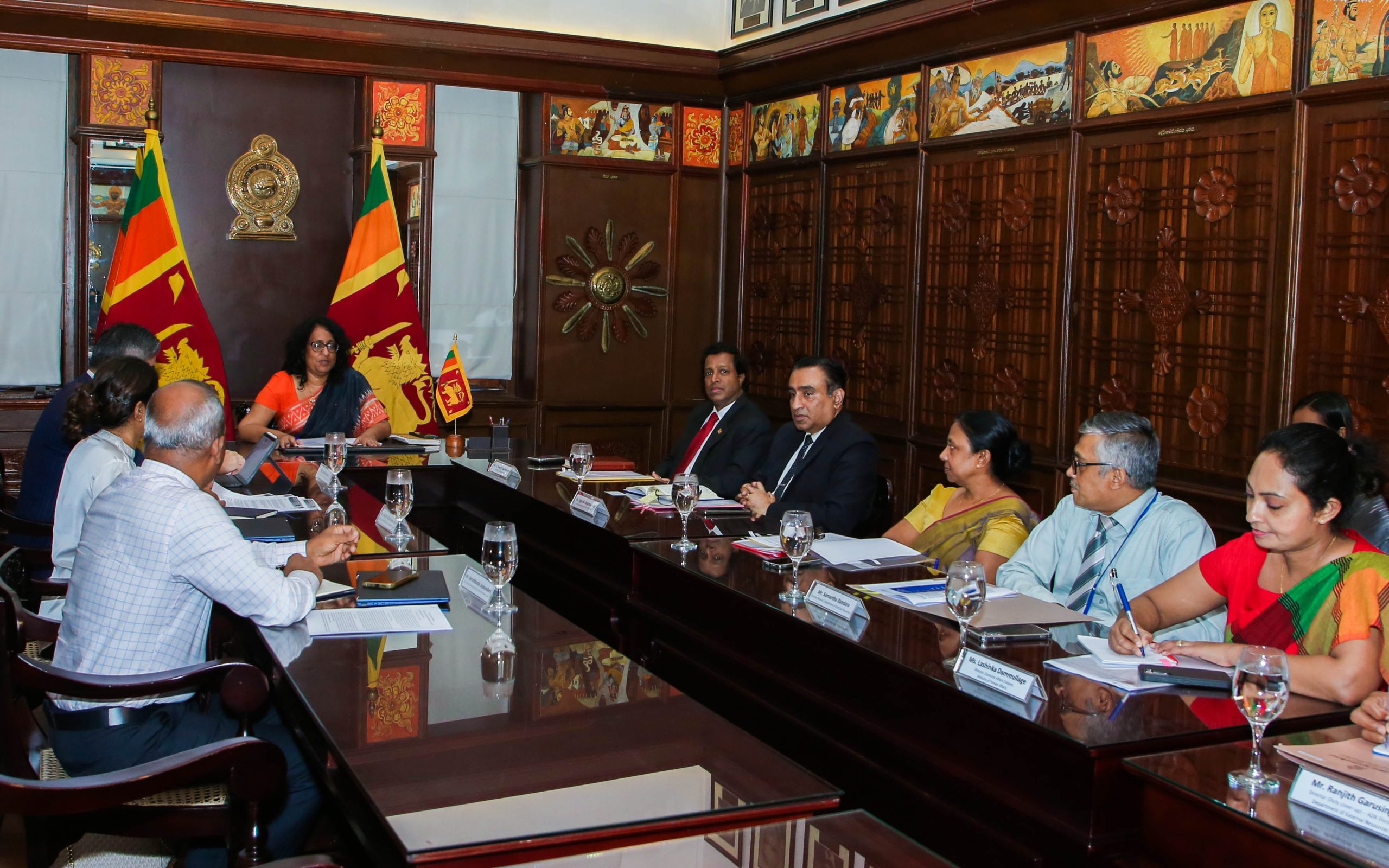
The Prime Minister of Sri Lanka, Dr. Harini Amarasuriya, met with Mr. Takafumi Kadono, Country Director of the Asian Development Bank (ADB) Sri Lanka Resident Mission, at the Prime Minister’s Office on Friday [20]. The discussions underscored ADB’s role as a key development partner and highlighted the importance of collaborative efforts in advancing Sri Lanka’s national development priorities.
During the discussion Prime Minister emphasized the importance of developing school infrastructure, teacher training, and assessment mechanisms. ADB reaffirmed its commitment to addressing challenges in the education sector through ongoing projects, including initiatives to enhance teacher and principal training.
The Sri Lankan delegation at the meeting included Pradeep Saputhanthri, Secretary to the Prime Minister; . Nalaka Kaluwewe, Secretary of the Ministry of Education, Higher Education, and Vocational Education; Ms. Sagarika Bogahawatta, Additional Secretary to the Prime Minister; . Samantha Bandara, Director General; Ranjith Garusinghe, Acting Director of the ADB Division; Ms. Dananji Amarasinghe, Assistant Director of the ADB Division at the Department of External Resources, Ministry of Finance; and Ms. Lashinka Dammullage, Director of Economic Affairs at the Ministry of Foreign Affairs.
[Prime Minister’s Media Division]
News
Govt to review role of 115 state entities costing Rs140bn a year
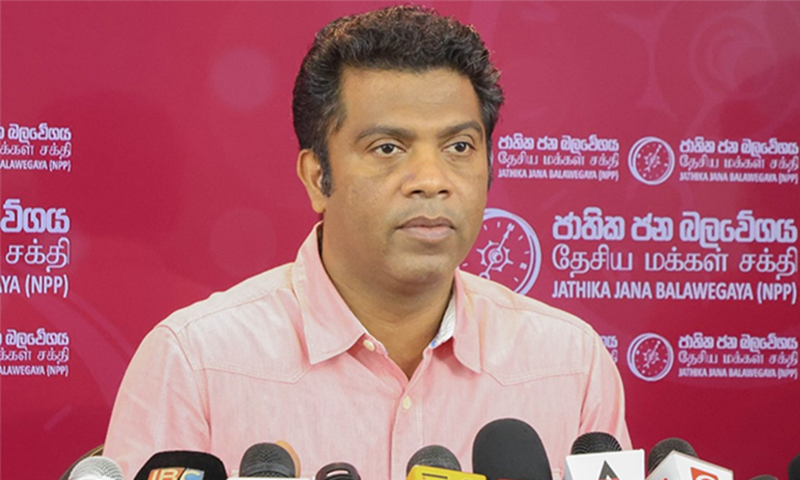
ECONOMYNEXT – Sri Lanka will review the role of 115 state entities which cost 140 billion rupees a year to maintain, Cabinet Spokesman Nalinda Jayatissa said.
Sri Lanka now has 86 departments, 25 district secretariats, and 339 divisional secretariats; 340 enterprises owned by the government and 115 non-commercial state statutory institutions other than police.
“There are boards, commissions, foundations, universities and statutory entities,” Jayatissa said.
“In the 2024 budget, 140 billion rupees was allocated for these entities.”
The 115 non-commercial state statutory institutions come under the supervision of the Department of National Budget and 51 institutions under the Department of Public Enterprises.
The purpose of these establishments has decreased over time, or the entities have lost its timeliness, and they lack or have very little power to initiate programs, and sometimes overlap with other establishments, Jayatissa said.
There was a timely requirement to conduct a review of these entities, he said, and the Cabinet of Ministers had approved a proposal to appoint an official committee headed by the Prime Minister’s secretary to conduct such a review and submit a report with recommendations.
Any savings made following the review will reduce the tax burden of the state on the people, in a spending based fiscal consolidation move.
Sri Lanka has been operating a ‘revenue based fiscal consolidation’ strategy under the IMF from around 2015 which eventually led to sovereign default after money was printed to target potential output. Technical assistance to target potential output was also given by the IMF.
News
Cardinal calls an end to corruption, lawlessness
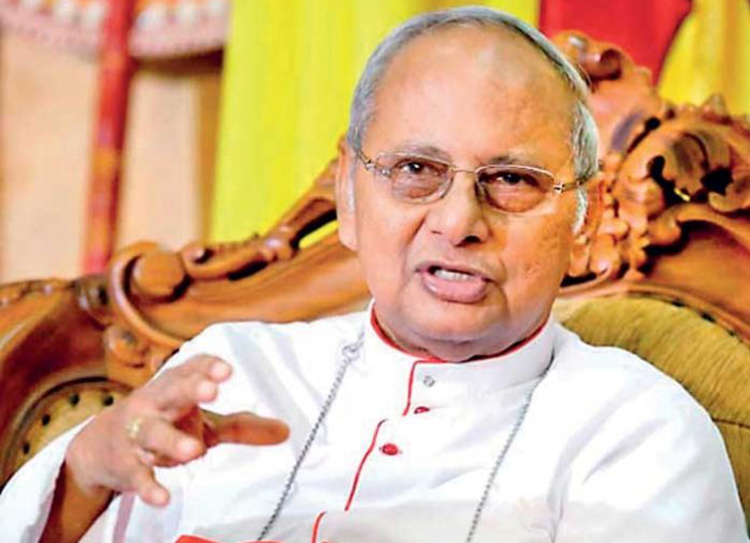
(UCAN) Cardinal Malcolm Ranjith has called for a Sri Lanka free from corruption and lawlessness, emphasizing the urgent need for systemic change.
“Corruption and lawlessness have spread throughout the country due to the wrong economic practices” of previous governments, Ranjith said, and hoped the new government “would bring about a positive transformation.”
“Nowadays, many people living in our country are wondering how even to celebrate Christmas and find their daily meals,” he added.
Speaking to the media ahead of Christmas on Dec. 19, the cardinal urged Catholics to remember the less fortunate this Christmas, encouraging families to open their homes and embrace the poor during the holiday season.
“I request all our Catholic families to invite a poor family in your neighborhood to your home this Christmas and share a meal,” Ranjith said.
He suggested they could provide lunch to a family or books and clothing for the children of the poor.
The Catholic Bishops’ Conference issued a special Christmas message that said the problem of poverty can only be alleviated by creating a fair economic structure.
“Creating this environment in our country requires the sincere commitment of every individual,” the bishops said in their Dec. 18 statement.
Meanwhile, the Coconut Development Authority announced that Cardinal Ranjith will subsidize the government’s purchase of coconuts from church-owned plantations in response to the national shortage and high coconut prices.
Suranimala Gunawardena, a rights activist campaigning against political corruption, said former politicians had misused millions of rupees from the President’s Fund.
Nalinda Jayatissa, the chief government whip and Minister of Health and Mass Media, revealed this in Parliament on Dec. 17.
He said 36 former parliamentarians had received millions of rupees from the President’s Fund from 2005 to 2024.
“This is the fund for people with critical illnesses, such as those needing heart surgery or cancer treatment. It is very difficult to raise 100,000 rupees [$347] for a patient, but former politicians have taken millions from this President’s Fund,” Gunawardena told UCA News.
-

 Opinion7 days ago
Opinion7 days agoDegree is not a title!
-
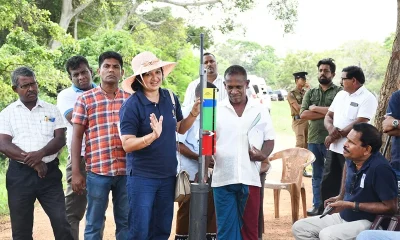
 News6 days ago
News6 days agoInnovative water management techniques revolutionising paddy cultivation in Lanka
-
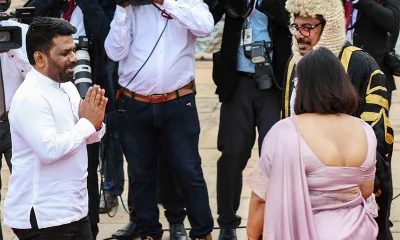
 Features5 days ago
Features5 days agoThe Degree Circus
-
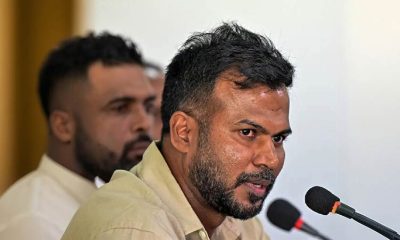
 Sports3 days ago
Sports3 days agoSri Lanka to mend fences with veterans
-

 Editorial7 days ago
Editorial7 days ago‘Compass’ under the microscope
-

 News7 days ago
News7 days agoArrest of Lankans on terrorism charges in Gujarat: Muslim grouping renews campaign for their release
-

 Opinion5 days ago
Opinion5 days agoHas ‘Compass’ lost direction?
-

 Editorial6 days ago
Editorial6 days agoA supreme irony











